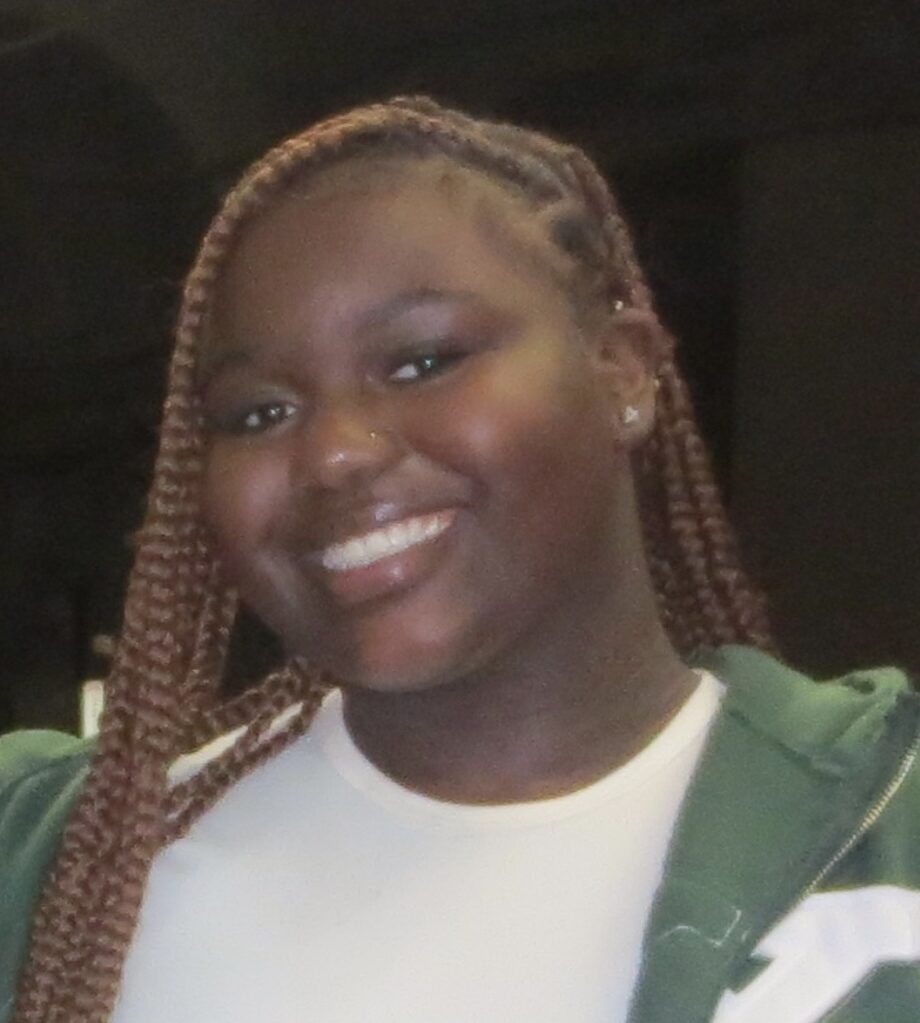From a young age, Jaciah Espaillat never really thought about being a mental health counselor. She wanted to be various other things, including a pediatrician, anesthesiologist, nurse anesthetist, sonographer, and registered nurse. Jumping from major to major, she was undeclared for most of her time at college. With the overwhelming feeling of uncertainty and the sense that her time in college was running out, it wasn’t until her senior year that Ms. Espaillat took a chance on psychology and mental health and decided to stick with it.
While trying to figure out what she wanted to do for a career, she knew that wanting to give back to others was always her calling. It just took a little extra push for her to pursue it. During the COVID pandemic, Ms. Espaillat was 23 years old and had just finished her undergrad at UMass Boston. Being in quarantine allowed her to dig deeper into the concept of mental health. Growing up in a Caribbean household, mental health had a huge stigma and wasn’t talked about. Studying mental health on her own allowed Ms. Espaillat to learn about mental health resources and tools and break that cycle. She started to fall in love with the subject, got her master’s in mental health counseling at Cambridge College in 2023, and realized this was the career for her. She has always loved to understand and hear different perspectives, and loves giving back and helping others, so it was a perfect fit.
Ms. Espaillat has been working with children for 6 years. To become a mental health counselor, you attend a 4–year university or college or start at a 2–year college and then go into a 4–year school. You then need a master’s degree and need to work a minimum of 2 years to gain your work hours. You can submit almost any hours you have done, including any program that you completed during college, as your pre-practicum hours.
For her internships, Ms. Espaillat worked with girls ages 8-18 helping with social skills, emotional skills, and physical self-dependence and served as a school-based outpatient counselor. Being able to combine the two internships was very helpful and contributed to her experience overall. She believes the more internships you take, the better. For Ms. Espaillat, in going through that rough patch in college of trying to figure out what she wanted to do for her career, she realized that college is the time when you start exploring your interests and the opportunities that come your way.
Ms. Espaillat worked in private practice (a substance-use facility), in a middle school, in school-based outpatient care, through virtual sessions, as a therapeutic mentor, and as an in-home therapist, and now she serves as Cristo Rey’s mental health counselor. She loves the structure and routine that a school has and always knew she wanted to be in a school-based setting. She’s able to talk to students, get to know them better, and collaborate with families. Not only is she working at Cristo Rey, but she also sees clients a couple times a week. She loves working with kids; she looks forward to her interactions with them when she comes in. She says, “You guys brighten up my day.” The small interactions in a busy day mean everything to Ms. Espaillat.
When asked, “How are you able to overcome certain obstacles that come your way often in the job?” She says it’s helpful to understand that making mistakes is a part of being human. When she’s feeling like she needs to perfect or correct something, she remembers that if she made a mistake, it’s all a part of life. “Make those mistakes, learn from them, and they will get easier over time.”
When asked, “What has been your most rewarding moment as a school counselor?” Ms. Espaillat says, “Knowing that I can make someone smile.” For Ms. Espaillat, knowing she can make a positive impact on someone’s life, such as a shift in their mood, is the most rewarding for her. Something as small as a smile from a student shows Ms. Espaillat a sign of resilience and hope and shows her that she’s doing something good. Being honest with students and letting them speak also plays a crucial role as she says, “I will never tell you what to do. The floor is yours.”
When speaking about some common strategies that she uses to connect with students, Ms. Espaillat says, “Having a lot of compassion and being able to be present with someone. It may seem simple but it’s the best strategy. It shows that you’re there and the other person can build trust with you and vice versa.” For Ms. Espaillat, being her authentic self and showing up for the person the same way she knows she would want someone to be there for her is only a part of what she does to connect with students.
If a high school student thinks they might want a career as a mental health counselor, what advice does Ms. Espaillat have? She says, “Be sure to take care of yourself as you start out, because this work is hard. It may seem easy, like I’m just doing a one-on-one and just talking with students. No, it is a hard job, and so I would say, have patience, and don’t pretend to be a person that you have seen people to be. Just be yourself.”













